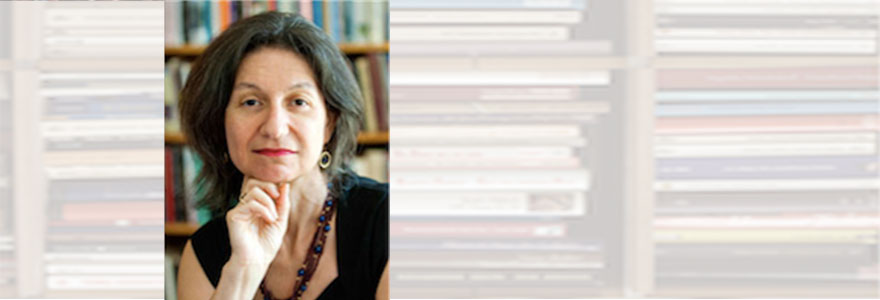News and Updates
Contact
Faculty of Social Science
Social Science Centre
Room 9438
Western University
T. 519-661-2053
F. 519-661-3868
E. social-science@uwo.ca
The Politics of Nakedness & the Dilemma of British Morality
September 16, 2019
Story by Rob Rombouts
Nakedness is a natural state. We are born naked, many creation stories start with naked humans, and yet, nakedness is treated as obscene and something that must be protected against.
“In some ways, these two views are incompatible, nakedness is either natural and ok, or it needs to be covered up,” said Philippa Levine, Professor of History and the Walter Prescott Webb Chair in History and Ideas at the University of Texas at Austin. This incompatibility leads Levine to see nakedness less as a description of a body that does not have clothes than as a historical construct created by society.
Levine will expand upon this topic over the three-day 2019 Joanne Goodman Lecture in the Department of History. The lecture series is entitled: “The Politics of Nakedness & the Dilemma of British Morality”.
“Nakedness is not a simple description, but a complicated set of ideas that tell us a lot about the societies we live in and the societies from which we emerged,” said Levine.
People are fascinated by the topic, as they have never thought of it as a historical issue, said Levine. The concept and societal understanding of nakedness brings together issues of sexuality, the history of science and medicine, and race and empire.
“It’s a fantastic topic that combines many issues that I’ve worked on, and what could be better than to combine all the issues that interest you in one, messy package,” said Levine.
In the first lecture of the series, entitled “Going Naked for the Lord: The Body Divine”, Levine will discuss the impact of religious views of nakedness, in particular Christianity, on western society. The lecture discusses discusses Biblical pronouncements on nakedness. It also looks at missionaries, who were very concerned with nakedness.
The second lecture, ‘The Empire Has No Clothes: The Body Primitive’, discusses how the idea of nakedness became racialized during the 19th century. Western imperialism expanded contact with different cultures and societies, nakedness became associated with non-Western people, particularly people from tropical regions. Levine said this played out in many ways, including being seen as a sign of being primitive, and being used to sell products.
“Something might be promoted as being a way to show how a particular tribe lives, but it’s really about selling images of naked bodies,” said Levine.
The third lecture, ‘To See is to Know: The Body Observed’, focuses on how, during the 19th century, science changed the way people thought about the naked body. Developments in new technology and advancements in science allowed for more examination of the human body from medical and scientific perspectives. The idea developed that studying the naked body is the best way to understand it.
Through the lectures, Levine supports her arguments with an extensive collection of images, including woodcuts, illustrations from travel books and scientific photographs.
“People are astonished by the illustrations, and fascinated by the range,” said Levine.
Levine said we have a perception that modern society has a very different approach to nakedness than in the past, but there is a difference between reality and perception.
“I don’t think our baseline attitudes have shifted all that much,” said Levine. “We like to think we are modern, that we are broad minded, and that we have thrown off the prejudices and petty-mindedness of earlier periods.”
Levine points to how Facebook has developed an algorithm to identify and block naked photos, even those considered high art.
“The fact that Facebook would spend the time and money to write an algorithm to spot that shows that we are dealing with something that is still an issue for society,” said Levine.
The Joanne Goodman Lectures will take place October 1, 2 and 3, in the Great Hall. The lecture series was established in 1975 by the Honourable Edwin A. Goodman and his family to perpetuate the memory of their daughter, a second year History student who died in a highway accident in April of that year.

